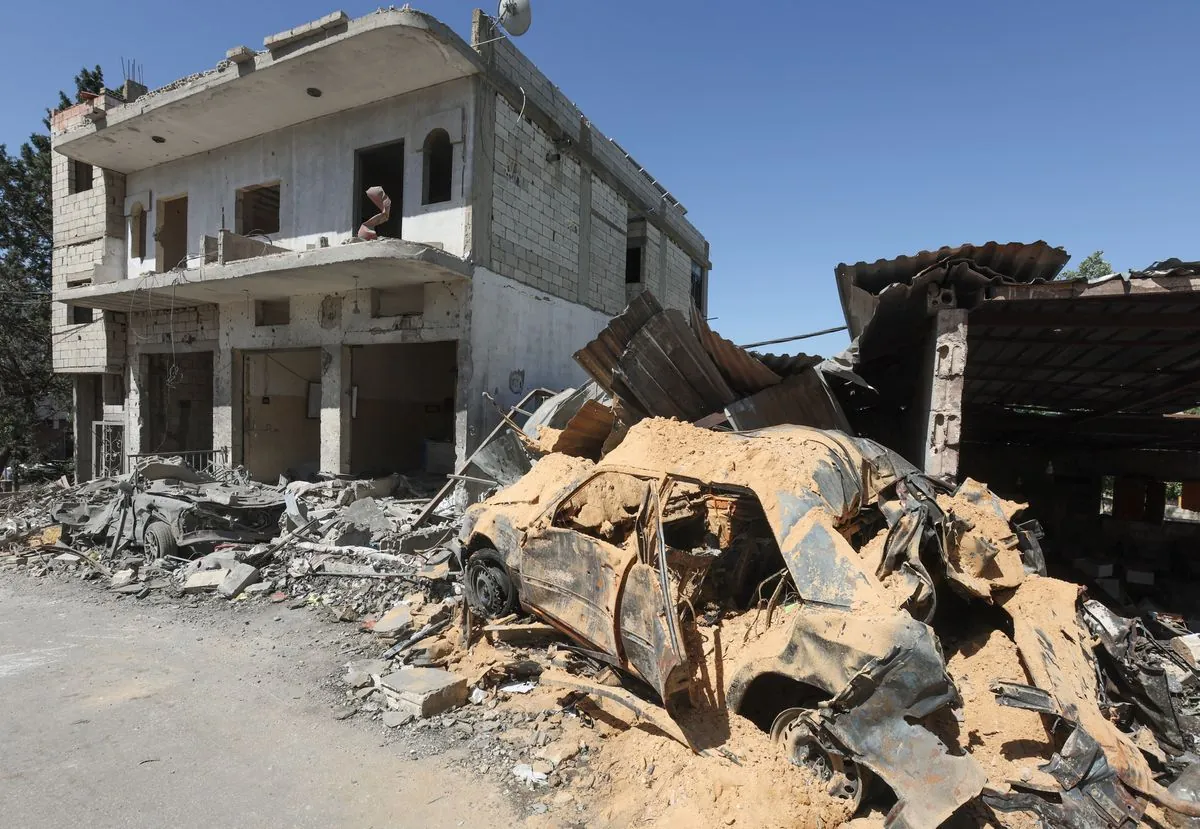On August 30, 2023, an Israeli drone strike targeted a vehicle near the Syrian-Lebanese border, resulting in the deaths of four individuals. According to two security sources, the victims included three Palestinian fighters and one member of Hezbollah, a Shia Islamist political party and militant group based in Lebanon.
The incident occurred at a Syrian checkpoint along the Damascus-Beirut road, which runs parallel to the 375 km (233 mi) long Syrian-Lebanese border. Local Syrian official Abdo al-Taqi confirmed the attack, stating that four people were killed when the car was targeted on Wednesday morning.
It's worth noting that the vehicle was reportedly not transporting weapons at the time of the strike. Neither Hezbollah nor the Palestinian Islamic Jihad movement, to which one source attributed the Palestinian fighters, have issued immediate comments on the incident.
This drone strike is part of a broader pattern of Israeli military operations in the region. Israel has a history of targeting weapons shipments and military infrastructure in Syria, with such actions intensifying since October 7, 2023, when the Gaza war, also known as the Israel-Hamas war, began. However, Israel typically maintains a policy of ambiguity regarding its operations in Syria, rarely confirming or denying its involvement in such strikes.
The incident occurred just hours after another Israeli airstrike in northeast Lebanon near the Syrian border. A security source reported that this earlier strike hit a pickup truck carrying military equipment, likely a damaged rocket launcher en route for repairs.
These events underscore the ongoing tensions in the region, particularly along the Israel-Lebanon border, which has been a site of frequent conflicts. Hezbollah, Islamic Jihad, and other armed factions have been known to launch rockets and drones at Israel from southern Lebanon. These groups, with strong ties to Iran and Syria's government, often transport fighters and weapons across the porous Syrian-Lebanese border.
The use of drones in military operations has become increasingly common worldwide since the early 2000s, reflecting the evolving nature of modern warfare. This latest strike demonstrates the continued volatility in the area, which has been exacerbated by the ongoing Syrian Civil War since 2011 and the recent escalation of the Israel-Hamas conflict.
As the situation develops, it remains to be seen how this incident will impact the already fragile regional stability. With Lebanon facing political instability and economic challenges, and the disputed Golan Heights territory between Israel and Syria remaining a source of conflict since 1967, the potential for further escalation looms large.
